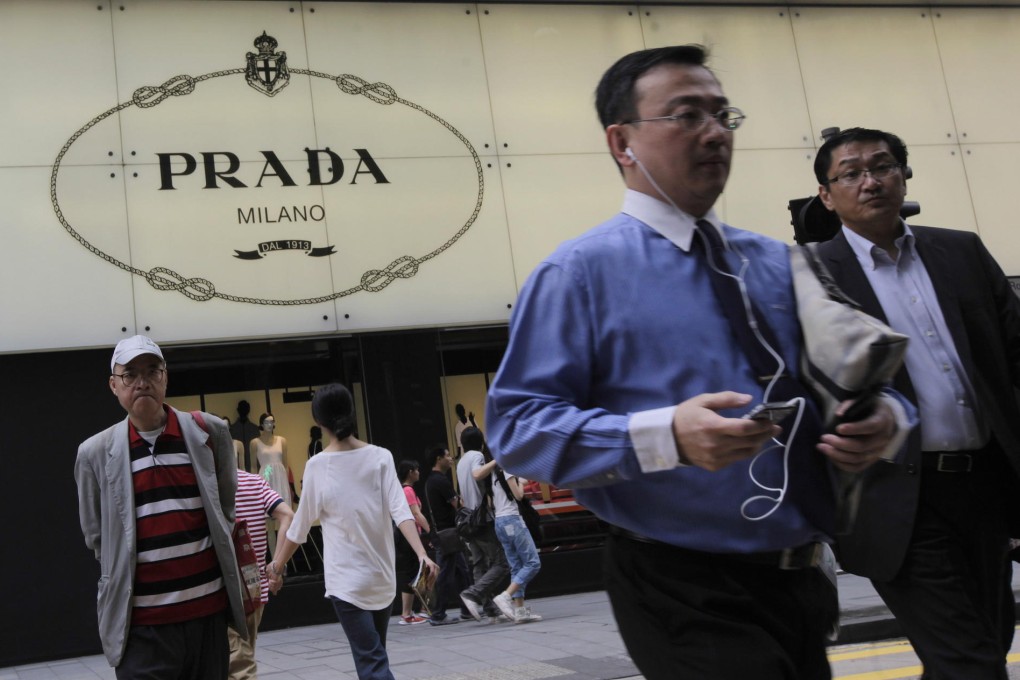New | Lunar New Year unlikely to lift luxury brands
Prada's annual sales fall 1 per cent amid sluggish performance from HK and Macau, and market conditions are expected to worsen

Sales this Lunar New Year are unlikely to be much of a saviour for luxury purveyors.
The world's biggest prestige retailers, including Kering, LVMH and Prada, were pinched after a tough fourth quarter last year affected by pro-democracy protests in Hong Kong. Protests against mainlanders in the New Territories this month and a stronger Hong Kong dollar against the yuan suggest no easing up in the retail environment.
On Sunday, Italian fashion house Prada announced disappointing sales figures that indicated the lacklustre performance in Hong Kong and Macau has extended into January.
Prada's preliminary sales figures for the year to January were €3.55 billion (HK$31.4 billion), down 1 per cent year on year, missing the consensus estimate of €3.57 billion in a Bloomberg analyst survey.
The Hong Kong-listed firm highlighted Asia as a tough region, down 7 per cent at constant exchange rates, dragged down by Hong Kong and Macau.
"The fall in sales in this area originated primarily in Hong Kong and Macau where market conditions deteriorated significantly during the second half of the year," a company announcement said. "The different timing of the Chinese New Year also affected performance for the month of January throughout the greater China area."
Last year, the lunar new year fell on January 31; this year it began on February 19.